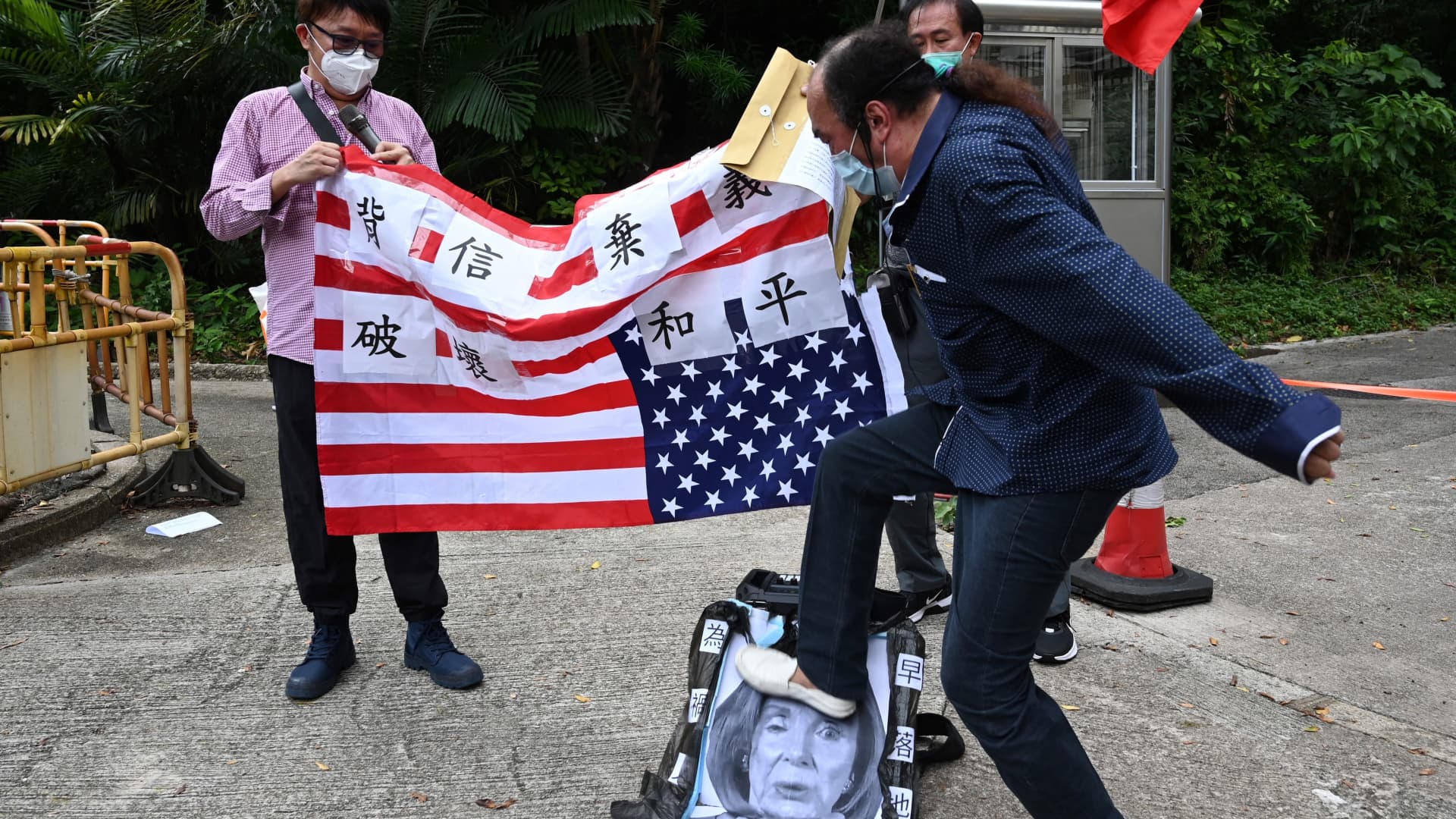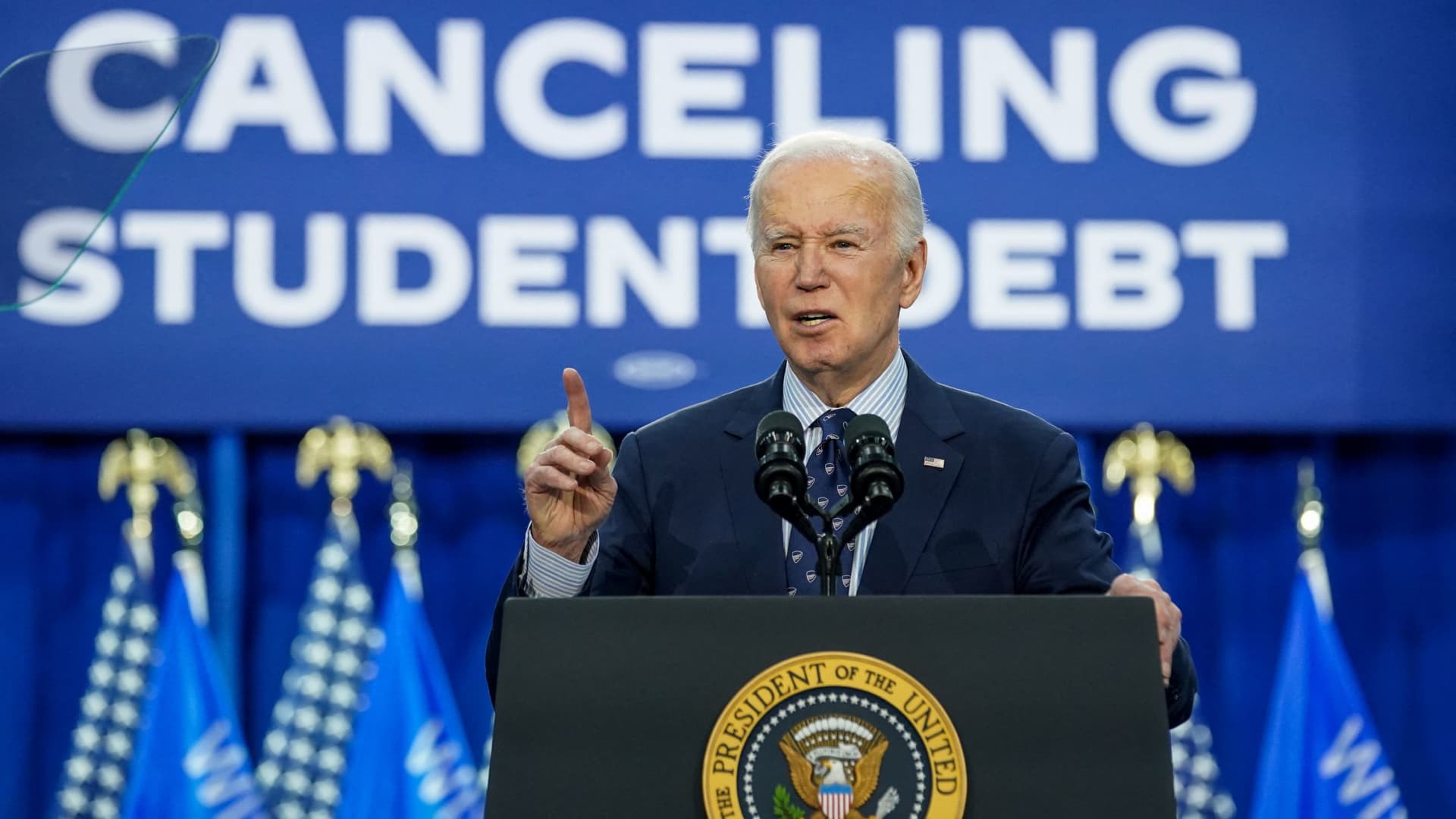
House Speaker Nancy Pelosi’s trip to Taiwan ramps up U.S.-China tensions and risks pushing the countries further apart, according to one economist.
On Wednesday, the top U.S. lawmaker met Taiwan President Tsai Ing-wen in a highly controversial visit that has angered Beijing.
“We’re on a trajectory of escalating conflict and this will certainly make matters worse. It plays well to local politics in the United States and in Taiwan, but it does not play well to geostrategic forces that are pushing these two nations apart,” Stephen Roach, a Yale University senior fellow and former Federal Reserve economist, told CNBC’s “Street Signs Asia” on Wednesday.
“The leadership in both the U.S. and China to address this conflict is compromised by this basically pouring salt in an open wound for China,” added Roach, who was also previously chairman of Morgan Stanley Asia.
Roach said, however, that does not mean China should be “let off the hook” for some of the concerns that Pelosi has raised.
“But to raise them in the context of a deteriorating relationship is asking for more serious repercussions in a much more difficult and intractable path to resolution. And we are not on a path to resolution. This visit if anything, it pushes that point of coming back together apart rather than bringing it closer together.”
Pelosi is the highest-ranking U.S. official to visit Taiwan in 25 years, drawing the ire of China which called the move a breach of the “one China” policy. Under that framework, the U.S. recognizes Beijing as the sole legal government of China, though Washington also maintains unofficial relations with Taiwan.
China on ‘defensive’
China had warned it would respond if Pelosi visited Taiwan, a self-ruled island that Beijing considers a runaway province.
At a Wednesday press conference after meeting Tsai, Pelosi said Taiwan was a symbol for democracy and was a contrast to the political system on mainland China and Hong Kong where the “one country two systems” promise “didn’t happen.”
Pelosi got “a lot of bipartisan praise” when details of her trip became public, Doug Heye, a former communications director at the Republican National Committee, told CNBC’s “Capital Connection” on Wednesday.
“I actually am incredibly proud of what Nancy Pelosi did on this trip. The easy thing to do would’ve been to fold and she sure didn’t do it,” he said, adding the House speaker is “consistent with being who she really is.”
Still, Pelosi’s trip creates a new headache for the Biden administration, which has tried to convince Beijing the visit says nothing about U.S. policy toward China or Taiwan.
Roach said the trip puts China on the defensive, pushing Beijing to demonstrate its resolve to pursue eventual reunification of Taiwan with the mainland.
“This is a setback to that objective in China,” he added.” I think China will make some compensating adjustment to offset the setback. I don’t think China will do anything rash. I don’t look for a overt military action, although … there is a considerable exercise or power going on in the Taiwan Strait.”
Ahead of Pelosi’s arrival in Taiwan, the Chinese military held live-fire exercises, deployed fighter jets to the Taiwan Strait and announced more military drills. Roach said while these maneuvers may not precipitate anything more immediate or serious, the risk of accidents shouldn’t be taken lightly.
China won’t be ‘reckless’
Despite China’s saber rattling, Beijing won’t do anything “reckless,” said Ja Ian Chong, an associate professor of political science at the National University of Singapore.
“I don’t think that Beijing wants a crisis to spiral out of control as well … They want to send a strong message, but I don’t think they will want to do anything that’s particularly reckless,” he told CNBC’s “Squawk Box Asia” on Wednesday.
“I think it’s important to keep that in mind. A lot of this messaging intends to create alarm, intends to create fear and to suggest that any effort to do what China does not like with Taiwan brings substantial costs and substantial risks,” he added.
He underlined “coercion itself” comes with enormous costs and risks to Beijing, adding it’s critical to balance that kind of “threatening behavior with a consideration of what Beijing actually wants and what Beijing’s able to carry off.”




